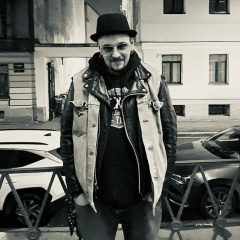шедевры из ЕГЭ по обществознанию :
1. Горбачев разрешил развитие идеологии инакомыслия.
2. Прошло время ссылок на север или в горячие точки.
3. «Оттепель» шла ярко, тепло, легко все разы. Годы же перестройки унесли за собой многие жизни, денежный фонд, наследственный фонд России, молодых спортивных парней. Но и то, и другое пророчило будущее, в котором всем будет легче
(сравнение «оттепели» и перестройки).
4. Поражение в Крымской войне вызвало революцию 1918-го года.
5. В стране появляется тяжелая и лагерная промышленность
(школьник явно хотел написать: «и легкая»).
6. Восстание напротив Белого дома.
7. При Хрущеве в СССР появился автомат Калашникова, компьютер и атомная бомба.
8. СССР и США соревновались, кто кого ПЕРЕПРЕВЗОЙДЕТ.
9. Из положительного император Павел сделал все, чтобы на престоле больше не было женщин.
10. Этот закон разрешал переход одного помещика к другому крестьянину.
11. Эти процессы вели к закрепостничеству крестьян, но раскрепощение крестьян было неизбежно.
12. В 1939 году руководителями внешней политики СССР были Брежнев и Наполеон.
13. Главные политические деятели-реформаторы во время правления Николая Первого это Ельцин и Хрущев.
14. Крестьянам дали свободу, но не дали денег, как и нам сейчас.
15. Началась гонка мирных вооружений.
16. Павел I реабилитировал Емельяна Пугачева.
17. Иван Грозный предал своих избирателей.
18. БиОполяный мир.
19. Павел I уважал и понимал крестьянский труд.
20. Учредили таинственный приказ, ввели СЕМИБАРЩИНУ
1. Горбачев разрешил развитие идеологии инакомыслия.
2. Прошло время ссылок на север или в горячие точки.
3. «Оттепель» шла ярко, тепло, легко все разы. Годы же перестройки унесли за собой многие жизни, денежный фонд, наследственный фонд России, молодых спортивных парней. Но и то, и другое пророчило будущее, в котором всем будет легче
(сравнение «оттепели» и перестройки).
4. Поражение в Крымской войне вызвало революцию 1918-го года.
5. В стране появляется тяжелая и лагерная промышленность
(школьник явно хотел написать: «и легкая»).
6. Восстание напротив Белого дома.
7. При Хрущеве в СССР появился автомат Калашникова, компьютер и атомная бомба.
8. СССР и США соревновались, кто кого ПЕРЕПРЕВЗОЙДЕТ.
9. Из положительного император Павел сделал все, чтобы на престоле больше не было женщин.
10. Этот закон разрешал переход одного помещика к другому крестьянину.
11. Эти процессы вели к закрепостничеству крестьян, но раскрепощение крестьян было неизбежно.
12. В 1939 году руководителями внешней политики СССР были Брежнев и Наполеон.
13. Главные политические деятели-реформаторы во время правления Николая Первого это Ельцин и Хрущев.
14. Крестьянам дали свободу, но не дали денег, как и нам сейчас.
15. Началась гонка мирных вооружений.
16. Павел I реабилитировал Емельяна Пугачева.
17. Иван Грозный предал своих избирателей.
18. БиОполяный мир.
19. Павел I уважал и понимал крестьянский труд.
20. Учредили таинственный приказ, ввели СЕМИБАРЩИНУ
masterpieces from the exam in social studies:
1. Gorbachev allowed the development of the ideology of dissent.
2. The time for links to the north or to hotspots has passed.
3. The "Thaw" was bright, warm, easy all the times. The years of perestroika, however, took away many lives, the monetary fund, the hereditary fund of Russia, young athletic guys. But both the one and the other prophesied a future in which it would be easier for everyone
(comparison of the "thaw" and perestroika).
4. The defeat in the Crimean War caused the revolution of 1918.
5. Heavy and camp industry appears in the country
(the student obviously wanted to write: "and easy").
6. The uprising in front of the White House.
7. Under Khrushchev, a Kalashnikov assault rifle, a computer and an atomic bomb appeared in the USSR.
8. The USSR and the USA competed, who will OVERCOME whom.
9. From the positive, Emperor Paul did everything so that there were no more women on the throne.
10. This law permitted the transfer of one landowner to another peasant.
11. These processes led to the enslavement of the peasants, but the emancipation of the peasants was inevitable.
12. In 1939, the leaders of the foreign policy of the USSR were Brezhnev and Napoleon.
13. The main political leaders-reformers during the reign of Nicholas I are Yeltsin and Khrushchev.
14. The peasants were given freedom, but they were not given money, as we are now.
15. The peaceful arms race began.
16. Paul I rehabilitated Yemelyan Pugachev.
17. Ivan the Terrible betrayed his voters.
18. Biopolar world.
19. Paul I respected and understood peasant labor.
20. Established a mysterious order, introduced SEMIBARSHCHINA
1. Gorbachev allowed the development of the ideology of dissent.
2. The time for links to the north or to hotspots has passed.
3. The "Thaw" was bright, warm, easy all the times. The years of perestroika, however, took away many lives, the monetary fund, the hereditary fund of Russia, young athletic guys. But both the one and the other prophesied a future in which it would be easier for everyone
(comparison of the "thaw" and perestroika).
4. The defeat in the Crimean War caused the revolution of 1918.
5. Heavy and camp industry appears in the country
(the student obviously wanted to write: "and easy").
6. The uprising in front of the White House.
7. Under Khrushchev, a Kalashnikov assault rifle, a computer and an atomic bomb appeared in the USSR.
8. The USSR and the USA competed, who will OVERCOME whom.
9. From the positive, Emperor Paul did everything so that there were no more women on the throne.
10. This law permitted the transfer of one landowner to another peasant.
11. These processes led to the enslavement of the peasants, but the emancipation of the peasants was inevitable.
12. In 1939, the leaders of the foreign policy of the USSR were Brezhnev and Napoleon.
13. The main political leaders-reformers during the reign of Nicholas I are Yeltsin and Khrushchev.
14. The peasants were given freedom, but they were not given money, as we are now.
15. The peaceful arms race began.
16. Paul I rehabilitated Yemelyan Pugachev.
17. Ivan the Terrible betrayed his voters.
18. Biopolar world.
19. Paul I respected and understood peasant labor.
20. Established a mysterious order, introduced SEMIBARSHCHINA
У записи 9 лайков,
5 репостов,
1005 просмотров.
5 репостов,
1005 просмотров.
Эту запись оставил(а) на своей стене Максим Козырев






























